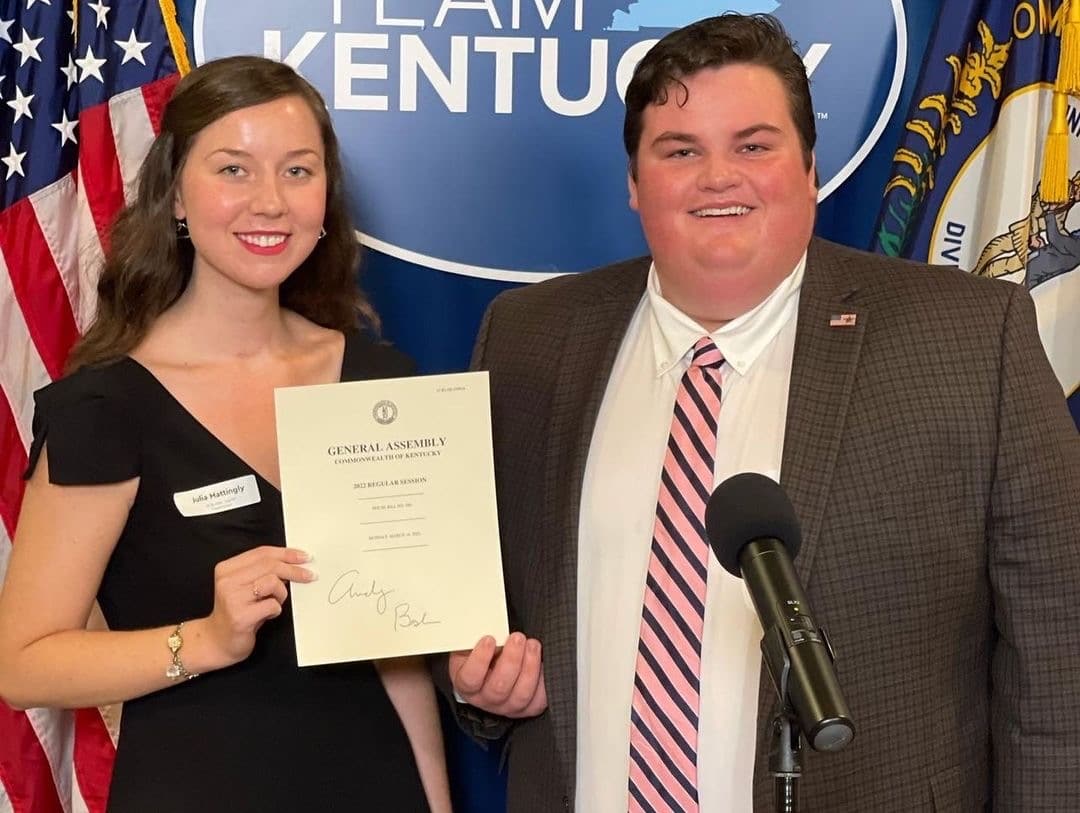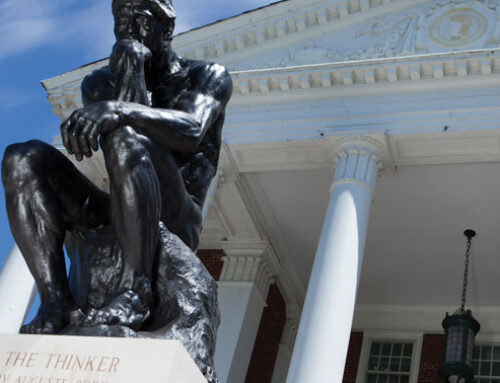By Tate Luckey
Julia Mattingly, a senior Political Science major, was at the center of a defamation case last summer, learning that properly defending her case would be an arduous process.
She said university attorneys reviewed her case. They determined her allegations did not rise to a violation of the Student Code of Conduct.
A representative from the Dean of Students told her that she should file a formal complaint to receive a conduct hearing, but she would have to act as her own attorney by collecting affidavits from all of those involved and preparing an oral argument to be presented to a board.
“As an undergraduate who has absolutely no legal experience, I was shocked at the notion I was to represent myself at the hearing and was not allowed to seek help from legal counsel,” Mattingly said.
And while she initially felt defeat and frustration, she and junior Political Science major Liam Gallagher turned this incident into advocacy and action. They partnered with the Kentucky Student Rights Coalition and state representatives to create HB290, or the Kentucky Campus Due Process Protection Act.

Julia Mattingly talks in a press conference about House Bill 290.
What does it do?
House Bill 290, which is now Kentucky Revised Statute Chapter 164, is a due process bill for students at public colleges and universities in Kentucky. It provides protections for students, including
- Procedural protection for students accused of violating their university’s code of conduct if that violation could result in a suspension, expulsion or removal from housing.
- Requiring that students have the ability to defend themselves, that they are presumed innocent.
- Students must be given written notice of charges against them and have access to the evidence and facts against them.
- Students must be judged by an impartial hearing panel where an investigator may not also serve the panel.
- Students are given the ability to cross-examine witnesses and be represented by an attorney.
These new protections are for both the accused and victims of potential code of conduct violations. They also have the ability to cross-examine, have an impartial hearing panel, and can be represented by an attorney.
The act also allows both respondents and complainants to appeal the final decision of the governing board of the university in the Kentucky Circuit Court system.
“This is really a first-of-its-kind action, allowing students to take action against their universities when their rights were violated is a huge win. The bill also has a reporting requirement that every three years public post-secondary institutions must report the number of disciplinary actions that have been taken,” Gallagher said.
The legislation is the most significant measure to help students in the Commonwealth since the 1990s, and it is the largest student rights protection bill in the United States.
The University of Louisville came out publicly against the bill when it was first filed by Representative Banta, with Mattingly and Gallagher telling The Louisville Cardinal that they learned the university was particularly not in favor of the reporting requirements and the ability to use legal counsel.
U of L argued the reporting requirements could possibly be used to identify students who were in disciplinary trouble and that having attorneys, and subsequent in-house counsel, could be too expensive.

Julia Mattingly and Liam Gallagher (left) with other members of the House Legislature at the signing of House Bill 290
Despite opposition, the bill received national attention from organizations like FIRE, the Foundation for Individual Rights and Expression. It also received support from over 70 student organizations in Kentucky, ranging from The College Democrats to the Young Americans for Freedom and from various LGBTQ+ organizations. It was ultimately signed into law by Governor Beshear over the summer.
Getting Involved
“I likely made 200 calls to the Legislative Research Commission hotline to leave messages for legislators. I had the honor to testify and share some of those stories in both the house and senate,” Gallagher said.
“The best way to get involved in the state or local legislative process is to participate in political student organizations here on campus,” Mattingly said . “If I had not been involved with the Young Democrats at U of L I would not have been given the opportunity to go speak on this bill in Frankfort.”
Gallagher noted that for anyone else who wants to try and create a change, even just leaving a message can be enough.
“Start with sending a letter or calling the Legislative Message Hotline (1-800-372-7181),” he said. “When someone calls the LRC Hotline they can ask to leave a message for any of the 138 legislators in Frankfort. That message is then placed on their desk for them to read. “
Gallagher was amazed their efforts could lead to such change. “When you work for a candidate and they do something to change a law or support a cause you support you can say ‘I played a small part in that’. Students that have been affected by the lack of due process in Kentucky’s universities- I believe us banding together have played a large role in the bill’s passage.”
You can read the specifics of the bill here.
Photo Courtesy // Julia Mattingly //




